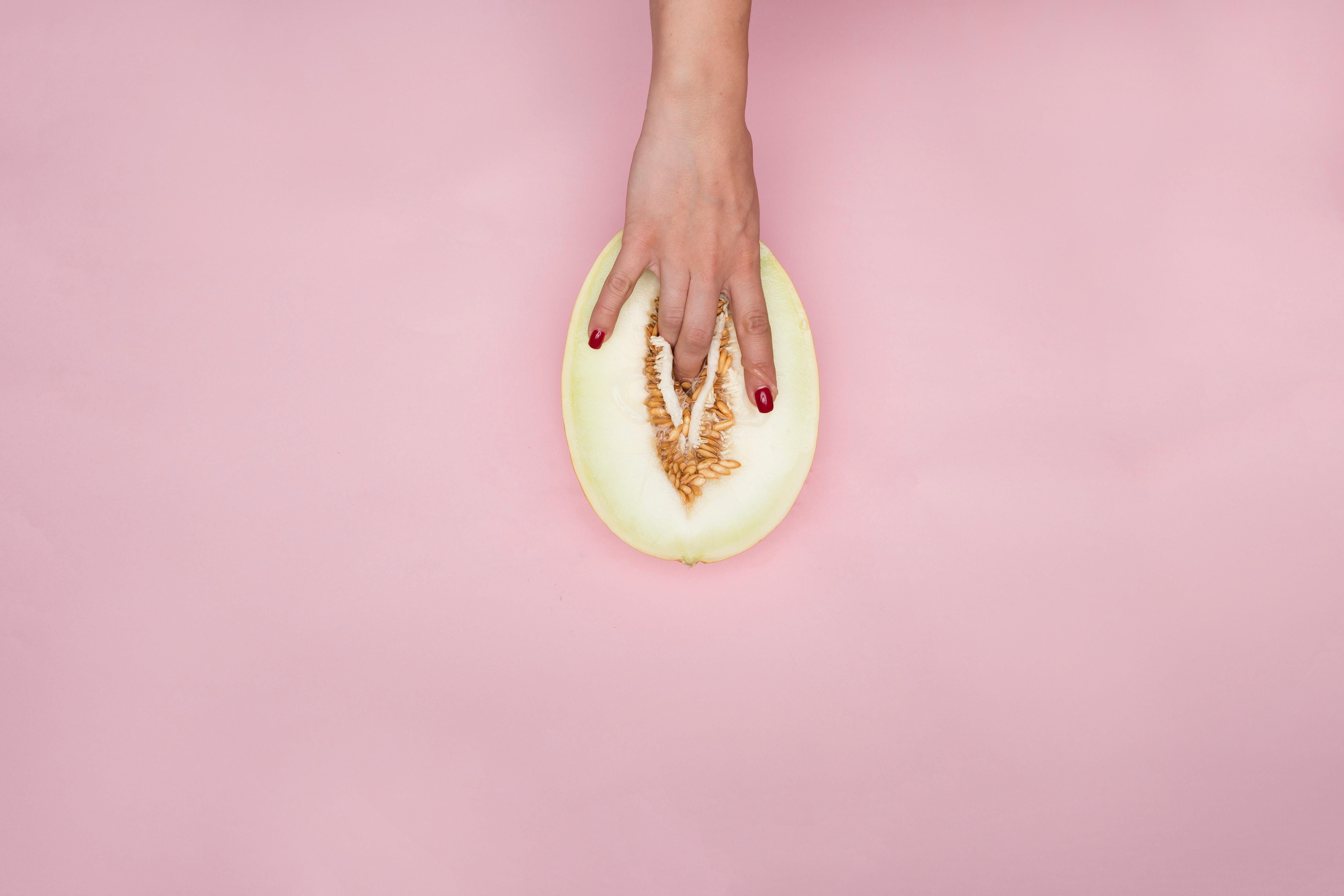Dear society, we really need to start having inclusive discussions about masturbation
Photo by Deon Black, a certified sexologist, writer, and photographer.
After impatiently devouring "The Undoing" and "The Queen's Gambit", I was desperate to find something new to binge. When I came across Hulu's "PEN15", I was intrigued. A comedy about two, thirty-something-year-old women (played by Maya Erskine and Anna Konke) reliving their middle school years?
Yes, please!
After watching the first episode, I was left with so much nostalgia. The clothes, the music and every trend that came out of the mid 2000s had me mentally reliving my early teens. However, one episode in particular took me back to a rather confusing time within my adolescence. The episode I'm referring to is the masturbation scene, when Maya masturbates for the first time. Being that Maya Erksine (who shares the same name as her character) is portraying a 13-year-old, her character is slightly confused about her overall enjoyment of the act, and continues to keep it a secret from everyone.
Including her best friend, Anna.
Thinking masturbation is an experience reserved solely for "pervy boys," we witness Maya feel ashamed throughout the entire episode for experiencing something that should feel natural. Not only did this leave me thinking about my first experience with masturbation, it also raised a very important question: why is there so much stigma surrounding female masturbation?
My theory is many girls think it's somehow wrong or perverse, which shouldn't be the case at all. There are a plethora of things women are stigmatized and harshly judged for. Masturbation is extremely high on that list. When boys hit puberty, masturbation is encouraged if not welcomed. For girls, it's entirely different.
We can thank society for embedding these distorted ideas into young girls minds. There's also a lack of information surrounding it as well. In fact, throughout sex education, I distinctively remember masturbation being depicted as something only boys did when they hit puberty. There were even tutorials distributed to all the boys on how to masturbate "properly," as if there's a standard way of doing it.
As for the girls, we got nothing in that regard. Instead, we were educated on how our anatomy is programmed to produce children, but nothing on how to experience pleasure. The double standards were evident. But as a 13-year-old girl, you think this how the world works, therefore you don't question it. And it doesn't just cease after puberty. Discomfort surrounding masturbation is something I've noticed into adulthood as well.
Even as adults, masturbation can sometimes feel difficult to discuss. I think a huge reason for that is because many women don't feel comfortable or connected with their own anatomy. I personally struggled with this throughout my teens and well into adulthood. I think that's probably why I held off on having sex in high school and waited until I was in my twenties.
Isn't it time we normalized period sex and banish the stigma surrounding it?
Let's be clear, the stigma surrounding period sex is completely gender-based. It is an arbitrary double standard created by men to shame women into feeling inadequate.
That's not to say I didn't have urges. I spent the better half of my youth being horny. I just wasn't equipped with the accurate and realistic instructions on how to alleviate those urges. With the misogynistic undertones porn offered, I was left in the dark. But with a bit of research and practice, I eventually became attuned with my body and developed a concise understanding of what self pleasure means for me.
It's a fact that women's sexual behaviors more judged more harshly than men's. Society continues to have this distorted imagine in their minds of how women are supposed to behave. And when I say society, I mean men. Men prefer women to have just enough experience to satisfy their needs, but not too experienced or else she's considered a slut. They want women to behave sweetly, but not too sweet or else she's a prude.
First of all, society needs to stop placing women in boxes. Women can be whatever they choose without having to constantly apologize for it. And damnit, we want orgasms! We reside in a drastically changed world, different from the ones our parents grew up. Women no longer have to feel ashamed about pleasuring ourselves.
We never did to begin with.
In today's cultural climate, female masturbation is better understood and more widely accepted. There are studies that even prove masturbation can promote physical, mental, and emotional health, as well as sexual health. By abolishing the narrative that female masturbation is wrong, we can make room to recognize it as healthy, helpful, and natural.
In addition, when we understand how to pleasure ourselves, we're able to express those desires to our partners. When we're able to communicate those desires effectively, it can lead to a more fulfilling sex life. The point I'm trying to make is women shouldn't feel guilty or embarrassed about masturbation. We should feel empowered by it.
But in order to feel empowered, we need to start having open and honest conversations about female pleasure. The more we normalize these conversations, the more comfortable women will begin to feel with their own sexuality.
